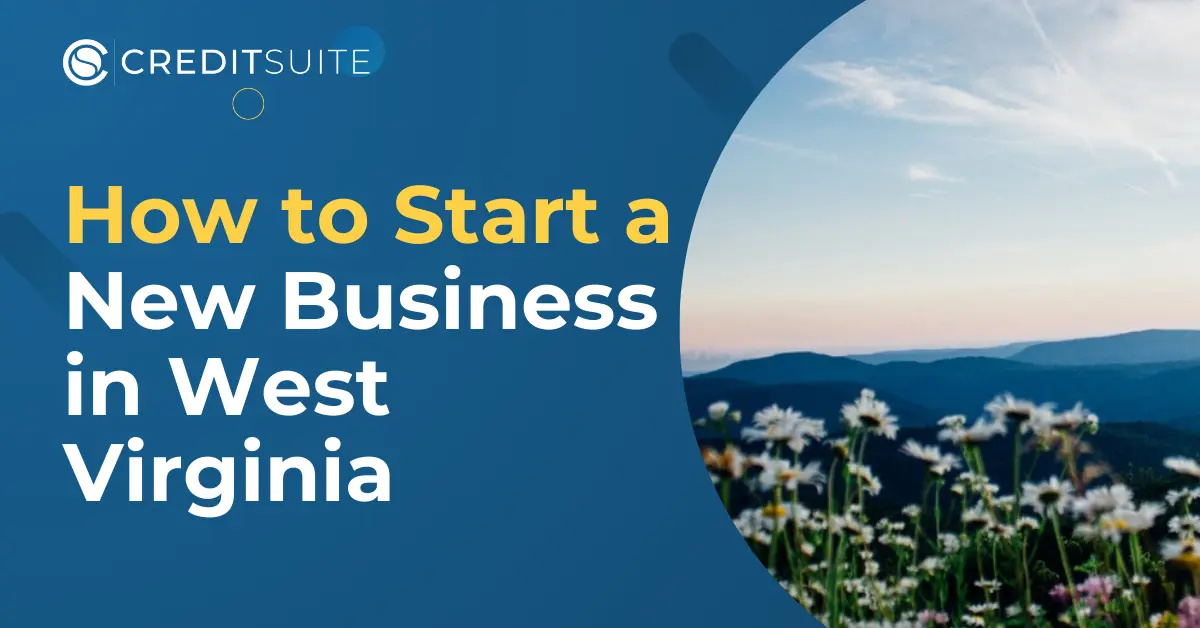How to Start a Business in West Virginia
A new business in West Virginia is not out of reach. So have you been wondering: how do I start a business in West Virginia? And more importantly, can I do so no matter what the economic conditions are? Can I start a new business in West Virginia during a recession?
New Business in West Virginia: Advantages and Disadvantages
Business Insider pegs West Virginia as the ninth worst state to start a business in, per a 2016 article. This is for the whole country. The state has the lowest density of startup businesses. There are 51.1 startup firms per 1,000 firms. It also has the third lowest percentage of people starting companies in the country. Potential employee education levels are above average. So is the percent of employees available to work.
But more businesses close than open in West Virginia. Also, the state has a low per capita GDP.
West Virginia has a variety of tax programs designed to bolster growth in specific industries, so new entrepreneurs will start a business in WV.
Recent Changes?
In 2018, Forbes ranks West Virginia at number 49. Also in 2018, Fit Small Business clocks in West Virginia at number 44.
Why the small discrepancies? Of course all three of these sites have different methodologies. Nonetheless, the findings are pretty similar.
Fit Small Business says West Virginia is decent for taxes and cost of living. Costs of starting a business are in the middle of the pack. But quality of life is sub-par. And everything else is in the bottom ten. This includes a 48 for labor market. That is a measure of the desirability of an area and the number of people with bachelor’s degrees.
Forbes says West Virginia only has a decent ranking for business costs. Otherwise, all other measurements are in the bottom ten. Labor supply is dead last. For Forbes, the only state worse is Alaska.
Signs point to starting a business in West Virginia as being expensive. Only you can decide whether it is worth it.
New Business in West Virginia: Initiatives
The state also offers manufacturing businesses access to credits for qualified investments made in productive property. These credits can be used to offset up to 60% of a business’s income and franchise tax liabilities.
West Virginia also provides a credit on raw materials and also goods held in inventory by manufacturers. In addition, there is a High-Tech Manufacturing Credit. It can be used to offset up to 100% of a company’s tax obligation. But this is only if the company can meet job creation benchmarks.
Start a New Business in West Virginia – West Virginia Top Industries
Per the West Virginia Department of Commerce, the biggest industries in West Virginia are aerospace, energy, and also manufacturing. More top industries in West Virginia are metals, building products, and also automotive.
Yet more West Virginia top industries are chemicals and polymers, and fulfillment distribution. Another group of top West Virginia industries are technology and also information services. As in most states, the health care and social assistance fields are also large employers.
How to Start a Small Business in WV with West Virginia Business Ideas
Smart business owners can find new opportunities. Work with the bigger industries in the state. Offer goods or services like the development and distribution of safety equipment. Another idea is trucking for any industry. More new business ideas are computer support in areas such as programming and also data. Yet another idea is developing chemicals and also pharmaceuticals.
Here is how to start a new business in West Virginia.
Start a New Business in West Virginia – West Virginia New Business Secretary of State Requirements
Register a Business Name
When starting a small business in WV, check for business name availability on the West Virginia Secretary of State’s website.
Corporations
A West Virginia corporation must have a unique name. Search online records and other records and catalogs to see if a name is available. Start by searching the database of registered West Virginia corporations available at the West Virginia Secretary of State website.
Corporate Name Reservations
You do not need to reserve a corporate name before you file to incorporate your small business. However, if a business owner wants to reserve a certain name for a corporation before the time that they file to incorporate, they should submit a name reservation application to the office of the West Virginia Secretary of State.
Download a name reservation application form at Reserve a West Virginia Corporation Name on the West Virginia Secretary of State website. The name chosen will then be reserved for a period of 120 days. There is a filing fee of $15.00 to reserve a name.
Business Permits and Licenses
Check out pages 4 and 16 of the Secretary of State’s Guide to Starting a Business for the best lists of professions that need licenses and where to get them.
Local Permits and Licenses
The Secretary of State offers a comprehensive roundup of West Virginia County websites.
Start a New Business in West Virginia – Business Registration
The West Virginia Secretary of State keeps forms you can file online. There is also an online business portal to help.
Tax Registration
Be sure to register with the West Virginia State Tax Department.
Start a New Business in West Virginia – Virtual Offices
Alliance Virtual Offices offers virtual offices in Marltinton. Regus and DaVinci do not offer West Virginia virtual business offices.
You might want to look for virtual business office space for Wheeling in Canonsburg, Pennsylvania, just over the border. For West Virginia virtual office space in Huntington, Morgantown, or Parkersburg, and in other parts of the state, ask local business owners. Also try computer user groups for leads in this area.
Other options may be virtual business office space in nearby states. These are Kentucky, Maryland, Ohio, Pennsylvania, and also Virginia. But keep in mind that your business will be more fundable if your main office is in the same state where you’re incorporated.
Start a New Business in West Virginia – Build Business Credit
Small business credit is credit in a small business’s name. It doesn’t attach to an owner’s personal credit, not even when the owner is a sole proprietor and the solitary employee of the small business.
Consequently, a business owner’s business and personal credit scores can be very different.
The Advantages
Given that business credit is distinct from individual, it helps to safeguard a small business owner’s personal assets, in the event of litigation or business bankruptcy.
Another benefit is that even startups can do this. Visiting a bank for a business loan can be a formula for disappointment. But building business credit, when done the right way, is a plan for success.
Personal credit scores depend on payments but also additional considerations like credit utilization percentages.
But for company credit, the scores actually merely hinge on whether a small business pays its debts punctually.
Start a New Business in West Virginia –Company Fundability™
A small business must be Fundable to loan providers and vendors.
Hence, a business will need a professional-looking web site and e-mail address. And it needs website hosting from a hosting company.
In addition, business telephone numbers should have a listing on 411, which you can get via ListYourself.net. Also, the business telephone number should be toll-free (800 exchange or the equivalent).
A business will also need a bank account dedicated only to it, and it needs to have all the licenses necessary for operation.
Dealing with the IRS
Visit the Internal Revenue Service web site and get an EIN for the small business. They’re free. Select a business entity such as corporation, LLC, etc.
A company can begin as a sole proprietor. But they should switch to a type of corporation or an LLC. This is to diminish risk. And it will take full advantage of tax benefits.
A business entity will matter when it concerns taxes and liability in the event of litigation. A sole proprietorship means the owner is it when it comes to liability and taxes. No one else is responsible.
Setting off the Business Credit Reporting Process
Begin at the D&B web site and get a free D-U-N-S number. A D-U-N-S number is how D&B gets a company in their system, to produce a PAYDEX score. If there is no D-U-N-S number, then there is no record and no PAYDEX score.
Once in D&B’s system, search Equifax and Experian’s sites for the small business. You can do this at www.creditsuite.com/reports. If there is a record with them, check it for correctness and completeness. If there are no records with them, go to the next step in the process.
By doing this, Experian and Equifax will have activity to report on.
Vendor Credit
First you need to build trade lines that report. This is also known as vendor credit. Then you’ll have an established credit profile, and you’ll get a business credit score.
 And with an established business credit profile and score you can start to get more credit.
And with an established business credit profile and score you can start to get more credit.
These types of accounts tend to be for the things bought all the time, like shipping boxes, ink and toner, and office furniture.
But to start with, what is trade credit? These trade lines are credit issuers who will give you initial credit when you have none now. Terms are often Net 30, instead of revolving.
Therefore, if you get an approval for $1,000 in vendor credit and use all of it, you need to pay that money back in a set term. Such as within 30 days on a Net 30 account.
Vendor Credit – It Makes Sense
Not every vendor can help like true starter credit can. These are merchants that will grant an approval with hardly any effort. You also want them to be reporting to one or more of the big three CRAs: Dun & Bradstreet, Equifax, and Experian.
You want 3 of these to move onto the next step.
Start a New Business in West Virginia – Monitor Your Business Credit
Know what is happening with your credit. Make sure it is being reported and fix any mistakes ASAP. Get in the practice of taking a look at credit reports. Dig into the specifics, not just the scores.
We can help you monitor business credit at Experian, Equifax, and D&B for considerably less than it would cost you at the CRAs.
Update Your Record
Update the data if there are inaccuracies or the data is incomplete.
Fix Your Business Credit
So, what’s all this monitoring for? It’s to challenge any mistakes in your records. Mistakes in your credit report(s) can be fixed. But the CRAs normally want you to dispute in a particular way.
A Word about Building Business Credit
Always use credit smartly! Don’t borrow beyond what you can pay back. Keep track of balances and deadlines for payments. Paying off punctually and completely will do more to elevate business credit scores than nearly anything else.
Establishing business credit pays. Excellent business credit scores help a company get loans. Your lending institution knows the business can pay its financial obligations. They recognize the company is bona fide.
The business’s EIN links to high scores and lenders won’t feel the need to call for a personal guarantee.
Business credit is an asset which can help your small business in years to come.
Learn more here and get started toward opening a new business in West Virginia.
Want to start a new business someplace else in America? Then check out our handy guide to starting a business in any state in the country.
West Virginia’s Response to COVID-19
In West Virginia, Secretary of State offices throughout the state will not serve walk-in business and licensing customers. All these services can be completed online or by paper. For paper submission, packets and paperwork may be submitted in-person at a drop-off location or via the U.S. mail.
Per an application by Governor Jim Justice, West Virginia small businesses can apply for emergency disaster loans from the SBA.
On April 28, it was announced that the regional Asheville airport will get $14 million from the CARES Act.

